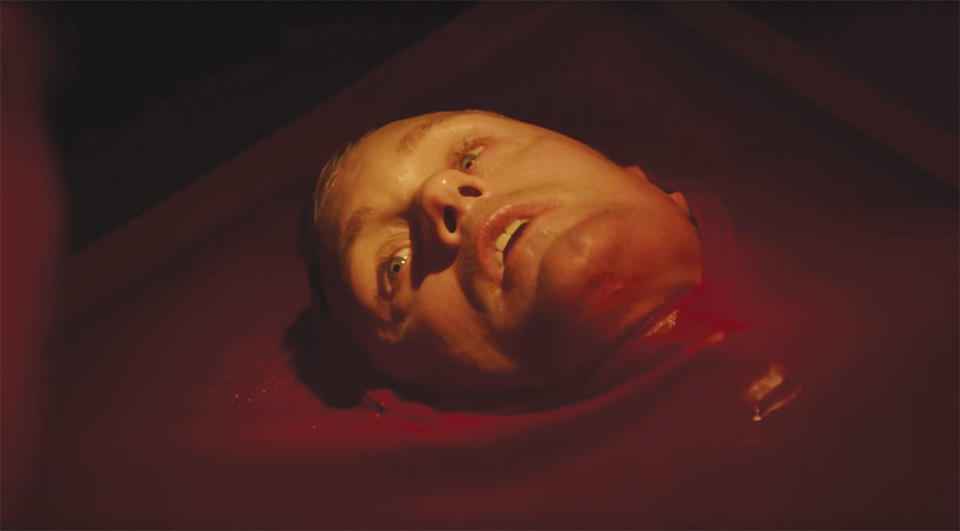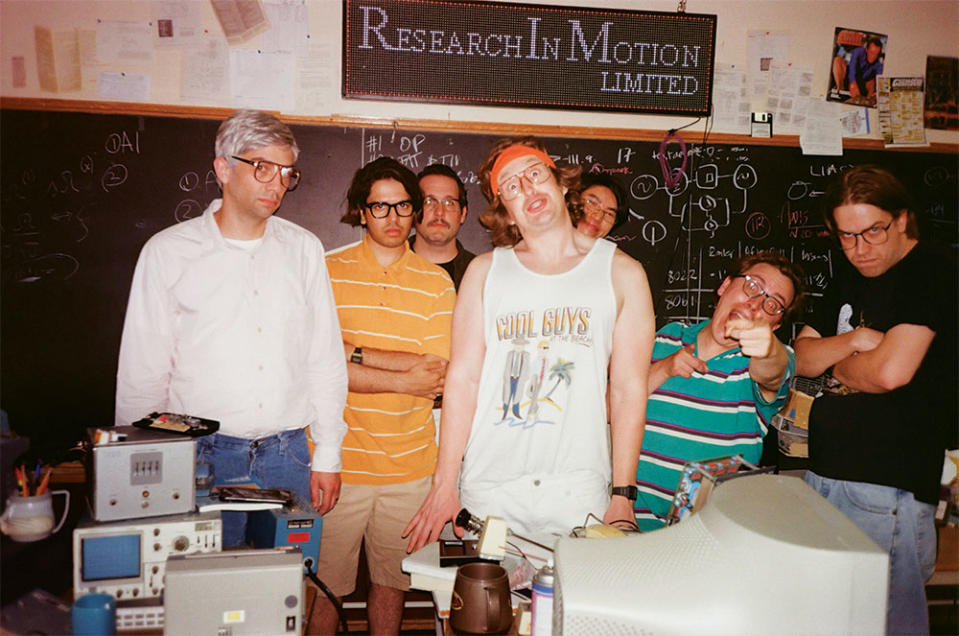“We Eat, Breathe and Sleep This Company”: Elevation Pictures’ 10-Year Journey to Canadian Indie Powerhouse

Since Elevation Pictures launched in 2013, its logo has become cozily familiar to film lovers across Canada. Just as the Janus Films logo ensures a true art house experience or Blumhouse a plunge into horror, Elevation promises Canadian viewers the best indies from both sides of the border and beyond.
For company co-presidents Laurie May and Noah Segal, that kind of brand identity has been strategic and deliberate. “Quality is king, always has been. It’s good content and a good setup,” Segal says of Elevation’s curated slate of films, each handpicked by his team and designed to compete in theaters and on TV against Hollywood tentpoles and streaming competition.
More from The Hollywood Reporter
Hugh Grant in Talks for A24 Thriller from 'A Quiet Place' Writers Scott Beck, Bryan Woods
Hunter March to Host 'Blown Away: Extreme Heat' on Netflix (Exclusive)
May and Segal were hardly new to the indie business when Elevation launched. As veterans of earlier players like Lionsgate’s Canadian arm and Alliance Films, the duo knew they had enough hands-on experience — and connections — in distribution to venture out on their own.
“The people involved in this company, myself and Noah and [executive vp and GM] Adrian Love and [executive vp sales and distribution] Jeremy Smith, everyone here has many years of experience in the industry and really wanted to build a company that was passionate about Canadian films and films that cross borders and elevate content,” says May.
As a result, Elevation has steadily risen to the top in Canada by combining its indie cred (and an expanding TV production arm) with deep pockets from major investor Black Bear Pictures. It was Black Bear topper Teddy Schwarzman who put up Elevation’s early financing after a pitch from May and Segal, setting the groundwork for Elevation to compete against bigger players in the Canadian distribution scene, including Toronto-based juggernaut Entertainment One.
For Schwarzman, investing in upstart Elevation allowed his U.S.-based company to fill a Canadian market gap after Alliance was acquired in 2012 by eOne and brought under its umbrella. The objective: introduce a local mini-major that would specialize in commercial indies and auteur-driven titles, too.
“I felt like we could create Elevation and make a significant and meaningful contribution to the Canadian distribution landscape,” Schwarzman tells THR. One of the indie’s first releases was the Schwarzman-produced The Imitation Game (2014), which brought in $10 million at the Canadian box office and earned an Oscar from eight nominations.

Elevation’s success in a Canadian market that represents one-tenth of the North American box office comes from a focus on nurturing every theatrical release, rather than relying on volume. “We took the gamble with Teddy’s support to say, ‘No, we believe if you focus on the pictures, the pictures will perform better. And you’ll be more profitable,’ ” Segal says.
As an indie distributor, Elevation competes in the shadow of Hollywood studios dominating the local multiplex with star-driven tentpoles by embracing indie filmmakers in Canada and international art house titles.
“You want to be blockbuster within the independent space. So that requires you to get big films that are independent films — like Teddy’s Imitation Game — and are well released and big in scope,” Segal says about Elevation’s consistent U.S. and foreign film product flow.
Other multiplex hits followed, including gems in the rough like Room (2015) and Moonlight (2016), indies that won audience awards at the Toronto Film Festival before going on to Oscar glory. Of course, given the size of the Canadian market, Elevation has had to cast its net far wider for content with more commercial potential.
That means more mainstream releases in Canada for titles like this year’s best picture Oscar winner Everything Everywhere All at Once and the upcoming My Big Fat Greek Wedding 3 and PAW Patrol: The Mighty Movie, a big-screen adaptation of the popular kids TV franchise. “We are wider, because we can’t do 10 small independent films a year and hope that one of them pops,” May explains.


That also means running Elevation like a family, not a corporation, and empowering younger employees to ensure that films the company acquires pass a creative litmus test. “There’s eight of us sitting round a table like a big Italian family, beating up scripts or [questioning] our desire to see a picture, whether it’s worthy, whether we all feel it or not,” Segal says.
Many of Elevation’s potentially zeitgeist-capturing releases come via output deals with American partners, including Black Bear, Neon and A24, with whom Elevation is a preferred partner north of the border.
In all, Elevation releases about 35 indie titles a year, with a third of those locally produced or acquired at festivals on completion that hopefully will become box office winners.
Key to Elevation’s proven playbook is that focus on financing homegrown directors and their films, with support from local funding agencies like Telefilm Canada to share the risks and rewards on what can be an uphill battle to launch and monetize Canadian indies.
Segal points to Stephen Campanelli’s Indian Horse (2017), a drama that explores the dark history of Canada’s treatment of its Indigenous peoples through residential schools. “It’s not easy to tell people, hey, spend your 20 bucks on a Friday night to go see a lesson in how bad we’ve been,” he says. But the film grossed $2 million in Canada, making it a hit.
Recent locally made releases include Clement Virgo’s Brother, about two Caribbean immigrants growing up in Toronto’s 1990s hip hop scene (it was named best motion picture at the Canadian Screen Awards); Brandon Cronenberg’s Sundance title Infinity Pool, where a tragic accident leaves a vacationing couple facing a local culture filled with violence, hedonism and horror; Matt Johnson’s Berlin title BlackBerry, about the meteoric rise and fall of the first smartphone; and Marie Clements’ Indigenous drama Bones of Crows, which garnered five Canadian Screen noms.


Of course, Elevation has accomplished all this while navigating an indie landscape that’s in great flux, with theaters shuttered because of COVID and global streamers continuing to disrupt theatrical cinema. For Segal, this means choosing the right titles that Elevation can “eventize” in an effort to bring moviegoers into theaters.
For BlackBerry, Segal says, “We worked influencers, we worked the press, we worked promotional partners. We flew all the talent involved in for special advance screenings and worked with the real people who the film was made about. We believed this was an event and we made sure Canadians knew it.”
The same holds true for streaming platforms or transactional VOD partners that Elevation does business with. “They don’t want volume. They want good stuff, regularly,” Segal notes.

In 2016, Elevation, having crested with about 25 films a year, stepped into the production space in partnership with veteran Canadian film and TV producer Christina Piovesan (the in-house head of production recently renewed her contract). “She epitomized kind of where we were,” says Segal of Piovesan, who oversaw recent Elevation-backed titles like the Anna Kendrick-starring Alice, Darling (2022) and Zach Braff’s A Good Person (2023), starring Florence Pugh. “She was really hungry. She killed to get shows done. Quality [is] imperative.”

Launching a production arm also has allowed Elevation to offer production services to films and TV series shooting in Canada. Given the amount of production activity in Toronto alone, the company appears to be making a long-term bet that Canada’s role as Hollywood’s backlot won’t be changing any time soon.
For Schwarzman, this focus on the long game has served Elevation — and his investment — well. “It’s been a great fit, working with the team that’s there,” he says. “We function less as an investor and more as a partner with them.”
That focus on disciplined, steady growth from its major investor plays well with the Elevation principals, who add that their focus on their work is all consuming.
Says Segal, “We eat, breathe and sleep this company.”
This story first appeared in the June 7 issue of The Hollywood Reporter magazine. Click here to subscribe.
Best of The Hollywood Reporter
Natalie Portman at Cannes: "I Need to Leave the Drama for the Screen"
Ailing ‘Superman’ Star Valerie Perrine Finally Finds Her Hero: "The Guy Should Be Sainted"

